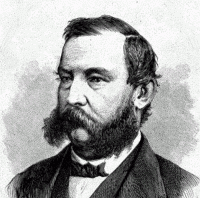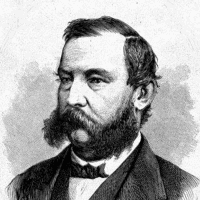- Facebook686
- Total 686
As residents of Massachusetts’ 5th district, we are proud to be represented by Rep. Katherine Clark. But I write today about her predecessor from 1855-61, Mr. Anson Burlingame.
The “Caning of Sumner” is a famous episode from American history. Massachusetts Senator Charles Sumner was a fierce abolitionist who denounced pro-slavery politicians by name, deliberately lacing his speeches with sexual imagery that evoked the slaveholders’ sexual predations. One target was Sen Andrew Butler of South Carolina, whose cousin, Rep. Preston Brooks, also served in Congress. Brooks contemplated challenging Sumner to a duel but decided that an equal fight would convey that his enemy held the status of a gentleman. Instead, he surprised Sumner on the floor of the Senate and beat him with a gutta-percha cane, soaking the Senate’s carpet with Sumner’s blood, blinding his victim, rendering him unconscious, and all but killing him. After he’d broken his cane, he continued to assault Sumner with the handle; he even required medical attention because he had injured himself with a backswing.
Shortly thereafter, Mr. Burlingame of Massachusetts denounced Brooks on the House floor as “the vilest sort of coward.” This insult was calculated to incite Brooks to challenge him to a duel. Brooks complied but seems to have been “dismayed by both Burlingame’s unexpectedly enthusiastic acceptance and his reputation as a crack shot.” Burlingame named the place for the duel–the Canadian side of Niagara Falls, to avoid the reach of US law–and the weapon: rifles. He would get the first shot and seemed to relish the opportunity to put a bullet in Mr. Brooks’ chest. The South Carolina congressman called it off, claiming–rather dubiously–that it would be too dangerous for him to traverse the Northern States to reach Niagara Falls.
Later, President Lincoln named Burlingame to represent the US at the court of the Austro-Hungarian empire, but the Empire rejected him because he had favored revolution. Burlingame served instead as ambassador to Imperial China, where he seems to have opposed European colonialism so vigorously that the Chinese named him “envoy extraordinary and minister plenipotentiary to head a Chinese diplomatic mission to the United States and the principal European nations” to defend the country’s sovereignty. Burlingame died on a diplomatic mission to Russia in 1870.

